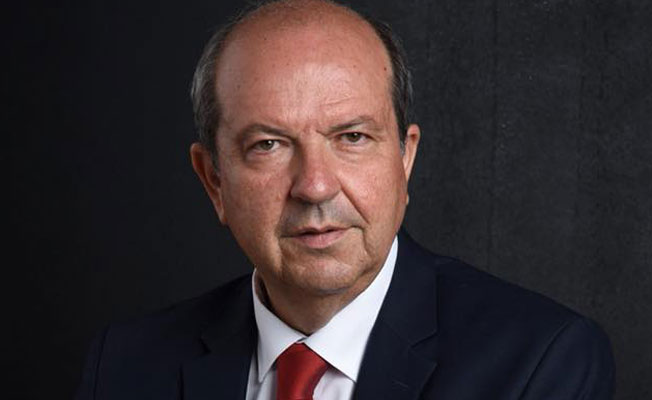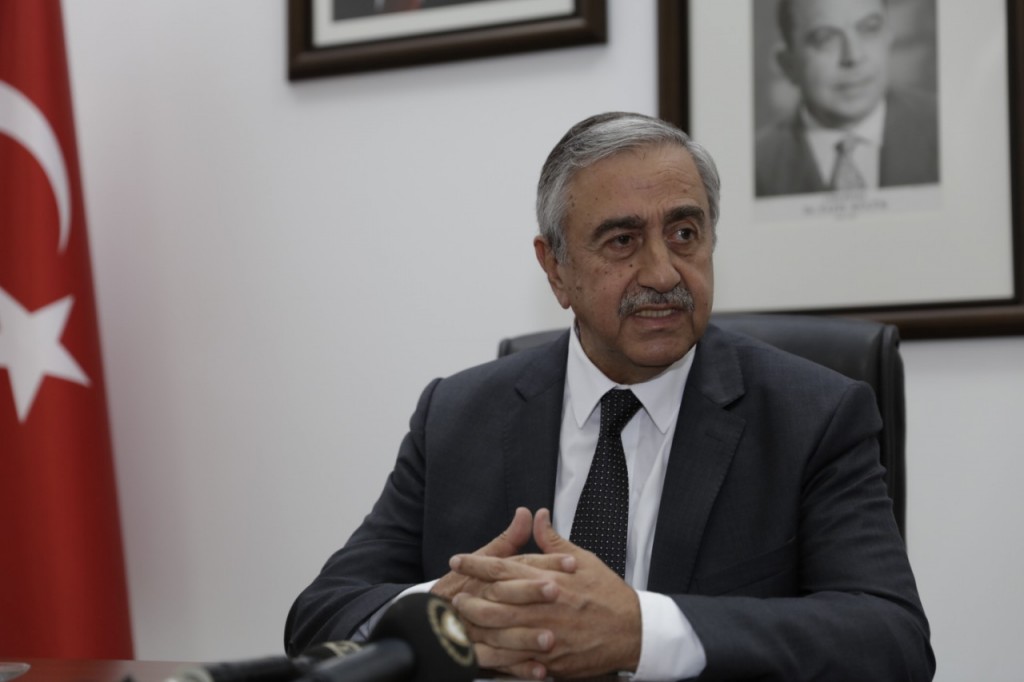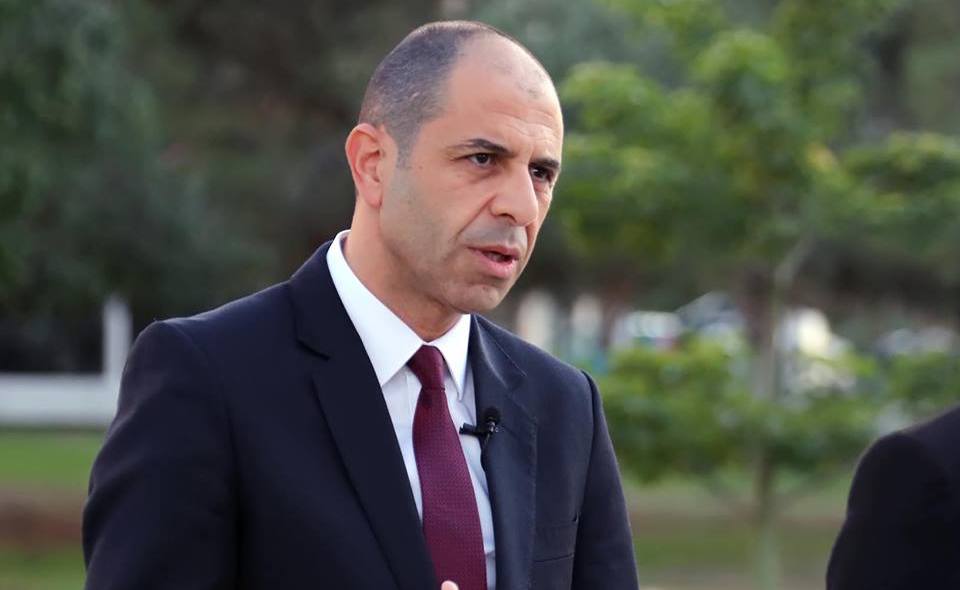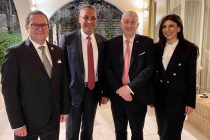Turkish Cypriot nationalists could take the helm of the government in North Cyprus after a fragile four-party coalition collapsed after just 15 months in office.
Turkish Republic of Northern Cyprus (TRNC) Finance Minister and Democrat Party (DP) leader Serdar Denktaş, son of the late TRNC President Rauf Denktaş, sparked the coalition’s downfall after announcing via social media on Wednesday evening that he was quitting his Cabinet post.
“About an hour ago I wrote to the Prime Minister [Tufan Erhürman] setting out my reasons for resigning from the Finance Ministry,” Mr Denktaş said in a short statement on his personal Facebook page, bypassing traditional media outlets.
He said he would continue to support the coalition “for as long as it lasts”.
That turned out to be less than four hours after Deputy Prime Minister and Minister of Foreign Affairs Kudret Özersay announced the same night that his centrist People’s Party (HP), with its nine MPs, was pulling out of the government.
“We are face to face with a crisis of confidence and trust,” he told reporters following an emergency HP meeting.
“We will decide whether or not to remain in opposition or whether to hold government talks with other parties.
“However, we will act by counting upon the experiences we have gained over the last 15 months.”
That prompted a further announcement minutes later by PM Erhürman, leader of the centre-left Republican Turkish Party (CTP), which has 12 MPs in the TRNC’s 50-seat Parliament.
He said via social media that he would tender his resignation to President Mustafa Akıncı, doing so yesterday morning, so that work to establish a new government could commence “without delay”.
After 15 months in office, the TRNC’s 4-way coalition government collapses within hours of DP leader Serdar Denktaş resigning as Finance Minister
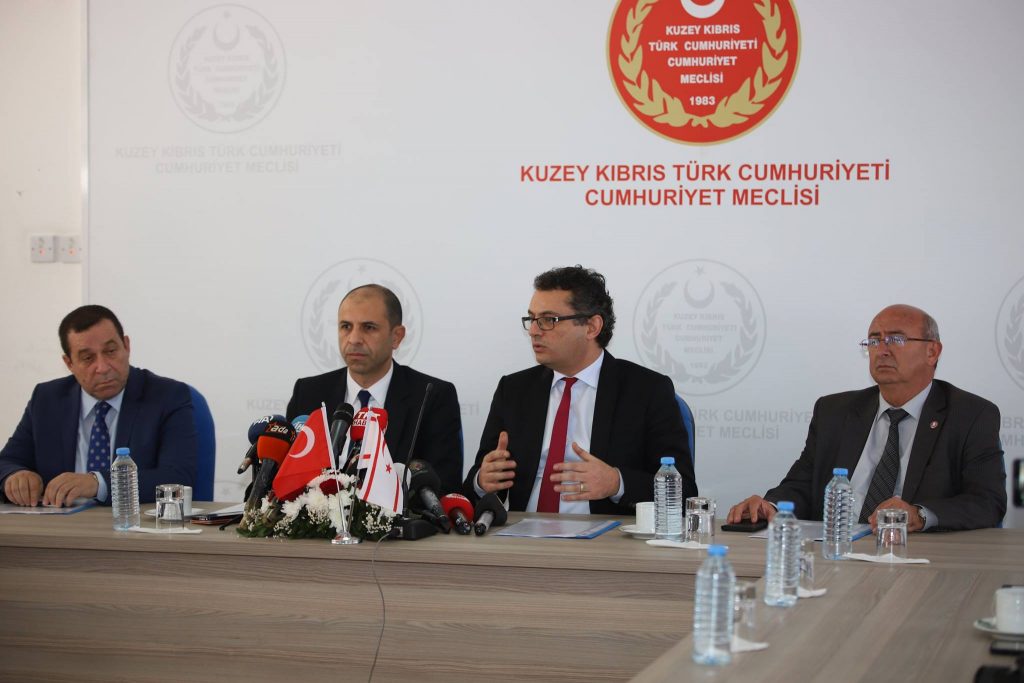
President Akıncı – whose own position is not directly affected by the resignations – said that Erhürman’s job had “not been easy”, noting that he had led the TRNC’s first ever four-party coalition.
He said he had asked the PM to remain in office until a new government can be formed, a process which will officially begin next week when Mr Akıncı will hold separate meetings with the leaders of the political parties represented in Parliament.
Speaking to reporters after his meeting at the presidential palace, PM Erhürman said he believed that the main opposition National Unity Party (UBP), as the biggest party in Parliament with 21 seats, should be given the mandate to form a government.
Referring to economic problems in the TRNC, sparked by falls in the value of the Turkish lira, he added: “It is important to have a stable government during times like this. I would like to wish the new government all the best because we are truly going through a difficult time.”
He said that an early general election would have to be called if efforts to form a new coalition failed.
UBP leader Ersin Tatar (pictured top) said that he was waiting for an “invitation” from President Akıncı to form a government.
“Now is the time to serve our country and our people,” Mr Tatar said on Thursday. “Everyone is aware of this. Our country expects service, our country expects stability.
“The economic crisis has hit the entire business world… We want this process to be completed in the shortest possible time.”
Next week, President Akıncı will invite UBP leader Ersin Tatar to form the next government. With 21 MPs, UBP is currently the largest party in the 50-seat TRNC Parliament
The TRNC government crisis exploded after Mr Denktaş came under fire earlier this week from coalition partners HP and the UBP over claims that he had leased state-owned land to the Rauf Denktaş University, of which his son is a partner, without following procurement rules.
DP General-Secretary Afet Özcafer told state broadcaster BRT that Mr Denktaş had done “nothing illegal” and that his resignation had “nothing to do” with the land lease issue.
Issuing a short statement to press reporters on Thursday following a meeting with DP members, Mr Denktaş, whose latest ministerial tenure lasted three years, did not refer directly to the land controversy, but said that he wanted to “clear his name” and that he had been the victim of an “organised attack”.
In a thinly veiled criticism of Prof Özersay, he added: “The friend who says he will fight against corruption has chosen to run away instead.”
The four-party coalition between the CTP, HP, DP and the left-wing Communal Democracy Party (TDP) was established on 2 February 2018 after intense talks following a general election the previous month.
The 34th TRNC government collapsed on Wednesday night after HP leader Kudret Özersay (pictured below) announced his party was withdrawing from the coalition. He told reporters: “We are face to face with a crisis of confidence & trust”
The UBP had emerged victorious, taking over 35 per cent of the popular vote and increasing its number of seats in Parliament from 14 to 21 – but was still five short of the 26 needed to rule on its own.
Its then leader Hüseyin Özgürgün was unable to form a majority government after CTP, HP, TDP and DP leaders refused to do a deal with him.
They went on to form their own coalition instead, with a combined total of 27 MPs.
Mr Özgürgün was then ousted as UBP leader at the party’s congress last autumn, when he was replaced by Ersin Tatar, leading to speculation that Mr Tatar could form a new government with HP’s Özersay, creating a centrist/right-wing pact of 30 MPs.
Prof Özersay, a former Cyprus talks negotiator, served as the special representative for former TRNC President and ex-UBP leader Derviş Eroğlu from 2010 to 2012.
The speculation had increased in recent weeks after Mr Tatar paid visits to Ankara and Istanbul at the end of April, where he held meetings with Turkish Foreign Minister Mevlüt Çavuşoğlu and Finance Minister Berat Albayrak.
Mr Çavuşoğlu was also in the TRNC from 3 to 5 May and had dinner with Erhürman and Özersay during which they “evaluated all issues related to the TRNC”.


